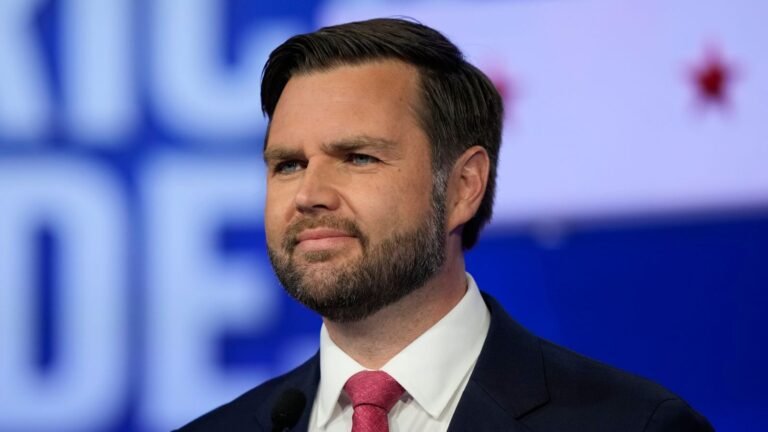JD Vance is a name that resonates strongly in American politics, particularly with those interested in the changing dynamics of the working class and conservative thought. From his humble beginnings in the Appalachian region to becoming a bestselling author and now a prominent political figure, JD Vance’s story is one of resilience and redefinition of American conservatism. In this article, we explore the life and influence of JD Vance, highlighting his journey from author to U.S. Senator, his political ideologies, and his impact on American society.
From ‘Hillbilly Elegy’ to Political Fame
Vance first came into the public eye with his memoir, Hillbilly Elegy: A Memoir of a Family and Culture in Crisis. The book, published in 2016, chronicles Vance’s upbringing in a struggling Rust Belt town and offers a deeply personal look at the challenges faced by white working-class Americans. It became an instant bestseller and struck a chord with readers across the political spectrum, earning praise for its raw and honest depiction of poverty, addiction, and the complexities of the American Dream.
The success of Hillbilly Elegy paved the way for Vance’s entry into politics. His ability to articulate the struggles of the working class garnered attention from conservatives who saw him as a potential leader who could bridge the gap between elite policymakers and the everyday American. It wasn’t long before Vance transitioned from author and commentator to politician, running for and winning a Senate seat in Ohio in 2022.
JD Vance’s Political Ideology
JD Vance’s political journey has been marked by his evolving views and willingness to challenge both party lines and popular narratives. Initially a critic of Donald Trump, Vance eventually shifted his stance and embraced Trump-style populism. This transformation reflected a broader trend in the Republican Party, where populist rhetoric became a key component of conservative politics.
Vance’s platform emphasizes a blend of economic nationalism, family values, and skepticism toward large corporations and foreign entanglements. He has spoken out against the influence of Big Tech, the decline of manufacturing jobs, and what he sees as the erosion of traditional American culture. Vance advocates for policies that prioritize American workers, support families, and limit the power of tech monopolies—issues that have endeared him to a significant portion of the Republican base.
Championing the Working Class
One of Vance’s key messages is his commitment to improving the lives of the working class. He frequently discusses the challenges faced by middle America, particularly in regions that have been left behind by globalization and deindustrialization. Vance’s experiences growing up in Middletown, Ohio—a town that struggled with job losses and the opioid crisis—give him a unique perspective on the issues faced by many Americans who feel disconnected from the prosperity seen in coastal cities.
Vance’s advocacy for the working class is not just rhetoric; he has proposed policies that reflect his understanding of their needs. He supports initiatives aimed at revitalizing American manufacturing, reducing the influence of international trade deals that disadvantage U.S. workers, and combating the opioid epidemic that has ravaged communities like the one he grew up in. By focusing on these issues, Vance has positioned himself as a voice for those who feel forgotten by the political establishment.
Criticism and Controversies
Despite his popularity among many conservatives, JD Vance has not been without his share of controversies. His shift from a vocal Trump critic to a staunch supporter raised questions about his political authenticity. Critics argue that his change in stance was motivated by political expediency rather than genuine belief. This transformation has led some to label him as an opportunist, willing to adapt his views to align with the prevailing winds within the Republican Party.
Vance has also faced criticism for his views on social issues. His strong stance on family values, particularly his opposition to abortion and support for traditional family structures, has drawn backlash from progressive groups who see his positions as regressive. Nonetheless, Vance has remained steadfast in his beliefs, arguing that strong families are the foundation of a prosperous society.
The Future of JD Vance in American Politics
JD Vance’s political future looks promising as he continues to carve out a space for himself within the Republican Party. His ability to connect with voters on a personal level, combined with his articulate critiques of both the left and the right, has made him a rising star in conservative circles. Vance’s focus on the working class, economic nationalism, and cultural conservatism aligns well with the current direction of the Republican Party, suggesting that his influence will only grow in the coming years.
As the political landscape continues to evolve, JD Vance’s role in shaping the future of American conservatism will be one to watch. His journey from the hills of Appalachia to the halls of the U.S. Senate is a testament to his resilience and determination. Whether you agree with his views or not, there’s no denying that JD Vance has become a significant voice in the conversation about what America should look like in the 21st century.
Conclusion
JD Vance’s rise to prominence is a story of transformation—both personal and political. From his candid portrayal of life in Hillbilly Elegy to his current role as a U.S. Senator, Vance has positioned himself as a key figure in the ongoing debate about the future of America. His focus on the working class, cultural values, and skepticism of elite power structures has struck a chord with many voters who feel left behind by the political establishment. As Vance continues to navigate the complexities of American politics, his influence on the conservative movement is likely to be profound and enduring.
